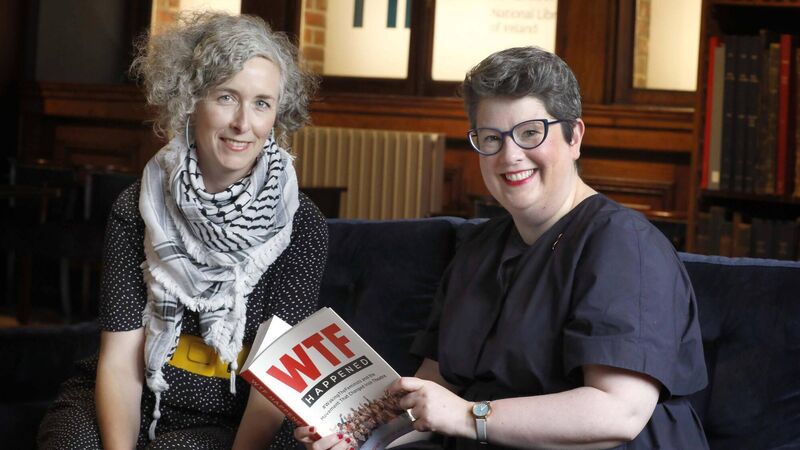'We were silenced and disappeared': New book looks at how Waking The Feminists shook up Irish theatre

WTF Happened co-authors Lian Bell and Sarah Durcan. Picture: Mark Stedman
There is a photograph which hangs proudly in Sarah Durcan’s home that serves as a powerful reminder of what can be achieved when women come together to demand change. It shows a large group of women gathered outside the Abbey Theatre holding a massive banner reading '#WakingTheFeminists'.
Taken on Thursday, November 12, 2015, before a historic public meeting in the Abbey Theatre, the mood was jubilant but also defiant. The same photo adorns the cover of the book written by Durcan, with Lian Bell.




